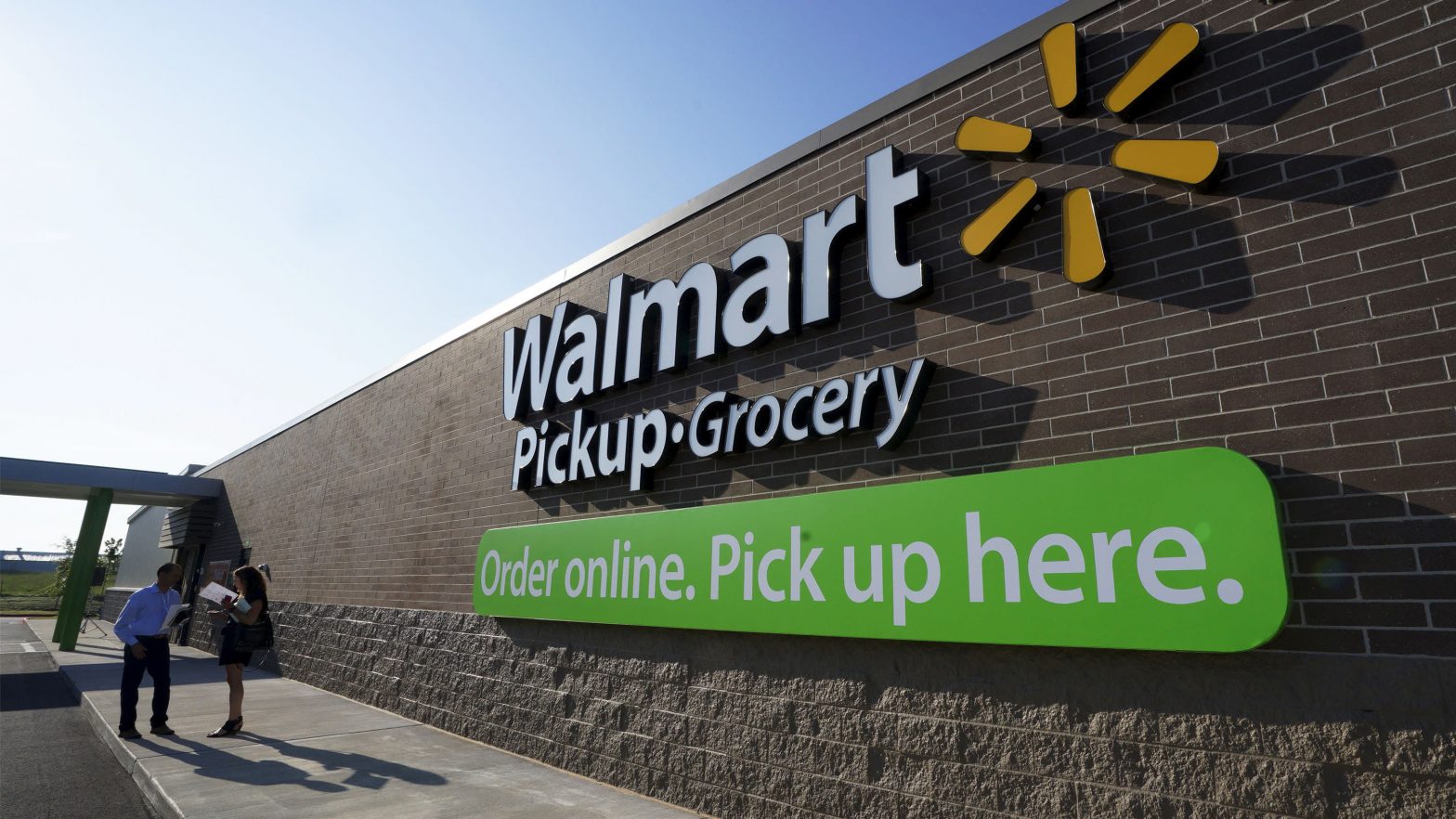One in every four dollars that Americans spent on online purchases retrieved through either curbside pickup or inside of stores this year went to Walmart, according to Insider Intelligence.
The big box giant drove 25.4% of all click-and-collect orders in 2021— the largest market share of any U.S. retailer, according to recent estimates by the market research firm formerly called eMarketer. That translates to an estimated $20.4 billion in sales.
Click-and-collect sales are expected to jump by about 21% to $101 billion in 2022, according to the data tracker. They’re expected to grow by nearly 20% the following year to an estimated $120.15 billion in 2023.
“It’s something people are used to doing now,” said Suzy Davidkhanian, principal analyst for retail and e-commerce at Insider Intelligence. People began to accept the behavioral change during the pandemic, along with such practices as scanning QR codes to read restaurant menus on their phones.
Click and collect — also called buy online, pick up in store — is now a key sales driver for pandemic-era retailers to deliver a safe, fast way to buy goods and limit person-to-person interactions. Consumers order groceries, sweatpants, lightbulbs, etc., online and then pick up their purchases in the parking lot or at a designated store counter.
For retailers, the option comes with financial advantages. The e-commerce sales are more profitable than other kinds of online sales because they eliminate the cost of delivering packages to people’s doorsteps and allow store employees to double as order pickers.
Shipping to the home still remains the more dominant e-commerce option in the U.S., however. The click-and-collect channel is on track to drive roughly 11% of all e-commerce sales for retailers next year, according to the market research firm.
For Walmart, click and collect has turned a huge store footprint into a weapon to fend off e-commerce colossus Amazon — not only to drive more sales but to improve margins and nudge online sales closer to profitability. Walmart has more than 4,700 stores in the U.S., excluding its membership-based store Sam’s Club. Amazon’s store footprint is just a fraction of that, consisting mainly of its more than 500 Whole Foods locations.
Walmart, the country’s largest grocer by revenue, began piloting online grocery pickup long before the pandemic. It tested the mode of shopping at a store in Denver in 2013 and marked its 1,000th location with the service in 2017. It now has curbside pickup at more than 3,700 stores.
Walmart’s click-and-collect sales have nearly tripled over the past two years, soaring from an estimated $7.21 billion in 2019 to $20.4 billion in 2021. Its market share has grown, too, up from 20.6% in 2019. Its U.S. e-commerce business has yet to turn a profit, despite expanding 79% in the previous fiscal year, which ended Jan. 31, 2021.
After Walmart, Home Depot is expected to have the second-largest market share for click and collect in 2021, accounting for an estimated 13.3% of all sales through the channel, according to Insider Intelligence. Target, Best Buy and Lowe’s round out the top five.
Home Depot rolled out curbside pickup to stores across the country in spring 2020 at the outset of the pandemic. Prior to that, customers could retrieve online purchases inside of the store from an employee or a pickup locker.
For shoppers, buy online, pick up in store has become a popular way to get time-sensitive home improvement supplies — such as a small hardware item, one more strand of Christmas tree lights or another can of paint — when trying to finish a do-it-yourself project or a professional job, said company spokeswoman Margaret Smith.
Target has added hundreds of groceries and other items to curbside pickup during the pandemic, including gallons of milk, cartons of eggs and bottles of wine. It credits its same-day curbside pickup service, Drive Up, for fueling digital sales growth during the global health crisis and has reported triple-digit percentage growth of sales through Drive Up in multiple quarters.
Davidkhanian said she expects Walmart to remain the country’s market share leader in click and collect. She said the big-box retailer is “leaps and bounds ahead of everybody else,” because of its early launch — and grocery sales, a purchase that lends itself to the shopping method due to their frequency and immediacy.
She said she expects Target to move up in the rankings — and potentially bump Home Depot from the No. 2 spot because of the former’s heavy emphasis on click and collect.
Correction: Walmart’s click-and-collect sales are expected to grow to an estimated $120.15 billion in 2023. An earlier version misstated the year.
